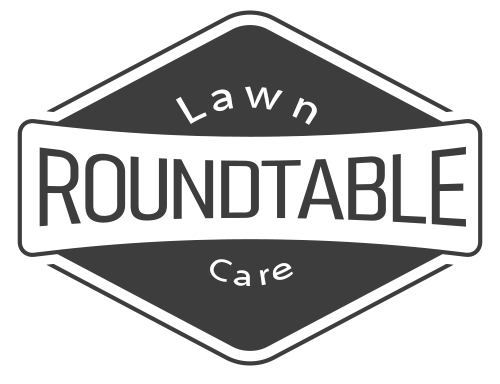Unveiling the Secrets of a Lush, West Michigan Lawn: The Ultimate Grass Seed Guide

The Ultimate Guide to Selecting the Perfect Grass Seed for a Thriving West Michigan Lawn
West Michigan’s diverse climate and soil types demand specific grass seed varieties. We explore the key factors to consider when selecting the perfect seed for your lawn, ensuring optimal growth and resilience.
Discover the best-performing grass seed varieties proven to thrive in West Michigan’s unique environment. We provide detailed descriptions of each variety, highlighting their unique characteristics and benefits.
Key Insights
- Choose the right grass seed variety for your West Michigan lawn, considering climate, soil type, and usage.
- Kentucky Bluegrass, Perennial Ryegrass, Fine Fescue, Tall Fescue are top-performing grass seed varieties for West Michigan.
- Professional grass seed installation ensures proper site preparation, seed selection, and ongoing maintenance for a healthy lawn.
- Proper lawn care practices, including regular mowing, watering, and fertilization, are crucial for a lush and thriving lawn.
- Address common lawn problems such as weeds and drainage issues with appropriate solutions.
1. Unveiling the Ideal Grass Seed for West Michigan’s Diverse Landscapes
Unveiling the Ideal Grass Seed for West Michigan’s Diverse Landscapes
West Michigan’s diverse climate and soil types demand specific grass seed varieties. We explore the key factors to consider when selecting the perfect seed for your lawn, ensuring optimal growth and resilience.
With its hot, humid summers and cold, snowy winters, West Michigan’s climate can be challenging for lawns. Additionally, the region’s soil types vary greatly, from sandy to clay. To achieve a lush, healthy lawn that can withstand these conditions, it’s crucial to choose the right grass seed variety.
When selecting grass seed for West Michigan, consider the following factors:
- Climate: Choose a grass seed variety that is well-suited to West Michigan’s climate. Some varieties, such as Kentucky Bluegrass and Perennial Ryegrass, are more tolerant of heat and humidity, while others, such as Fine Fescue, are more shade-tolerant.
- Soil type: Match the grass seed variety to your soil type. For example, Kentucky Bluegrass prefers well-drained soils, while Fine Fescue can tolerate more acidic and compacted soils.
- Usage: Consider how you will be using your lawn. If you have children or pets, you may want to choose a more durable variety, such as Perennial Ryegrass. If you are looking for a low-maintenance lawn, Fine Fescue may be a better option.
2. Introducing the Top Grass Seed Varieties for West Michigan
Introducing the Top Grass Seed Varieties for West Michigan
Discover the best-performing grass seed varieties proven to thrive in West Michigan’s unique environment. We provide detailed descriptions of each variety, highlighting their unique characteristics and benefits.
Kentucky Bluegrass: Kentucky Bluegrass is a popular choice for West Michigan lawns due to its durability, drought tolerance, and attractive blue-green color. It prefers well-drained soils and full sun to partial shade.
Perennial Ryegrass: Perennial Ryegrass is known for its quick recovery from damage, adaptability to different soil types, and year-round green color. It is often used in sports fields and high-traffic areas.
Fine Fescue: Fine Fescue is a shade-tolerant and water-efficient grass seed variety. It has a fine texture and is often used in low-maintenance lawns and shady areas.
3. Kentucky Bluegrass: A Resilient and Durable Choice
Kentucky Bluegrass: A Resilient and Durable Choice
Kentucky Bluegrass is a popular choice for West Michigan lawns due to its durability, drought tolerance, and attractive blue-green color.
Kentucky Bluegrass is known for its resilience and ability to withstand various conditions. It has good drought tolerance and can recover quickly from damage. Additionally, Kentucky Bluegrass is resistant to many common lawn diseases, making it a low-maintenance option.
With its distinctive blue-green color and medium texture, Kentucky Bluegrass creates a visually appealing lawn. It prefers well-drained soils and full sun to partial shade. Proper care, including regular mowing, watering, and fertilization, will help Kentucky Bluegrass thrive and maintain its lush appearance.
4. Perennial Ryegrass: Adaptable and Low-Maintenance
Perennial Ryegrass: Adaptable and Low-Maintenance
Discover the versatility and low-maintenance benefits of Perennial Ryegrass. Explore its adaptability to different soil types, quick recovery from damage, and year-round green color.
Perennial Ryegrass is known for its adaptability and hardiness. It can tolerate a wide range of soil types, from sandy to clay, and is drought-tolerant. Additionally, Perennial Ryegrass has a rapid recovery rate from damage, making it a good choice for high-traffic areas or lawns that experience wear and tear.
Perennial Ryegrass maintains its green color throughout the year, even during winter months. It has a medium texture and a slightly coarser appearance compared to Kentucky Bluegrass. With proper care, including regular mowing, watering, and fertilization, Perennial Ryegrass will thrive and provide a durable, low-maintenance lawn.
5. Fine Fescue: Shade-Tolerant and Water-Efficient
Fine Fescue: Shade-Tolerant and Water-Efficient
Embrace the shade tolerance and water efficiency of Fine Fescue. Learn about its suitability for shady areas, drought resistance, and ability to blend with other grass species.
Fine Fescue is a shade-tolerant grass seed variety that thrives in areas with limited sunlight. It has a fine texture and a dark green color, creating a dense and lush lawn. Fine Fescue is also drought-resistant, making it a good choice for areas that experience water restrictions or dry spells.
Fine Fescue can be blended with other grass seed varieties to create a more diverse and resilient lawn. It blends well with Kentucky Bluegrass and Perennial Ryegrass, adding shade tolerance and drought resistance to the mix. With proper care, including regular mowing, watering, and fertilization, Fine Fescue will thrive and provide a low-maintenance, water-efficient lawn.
6. Tall Fescue: A Heat-Tolerant and Disease-Resistant Option
Tall Fescue: A Heat-Tolerant and Disease-Resistant Option
Consider the heat tolerance and disease resistance of Tall Fescue. Explore its adaptability to various soil types, drought tolerance, and resistance to common lawn diseases.
Tall Fescue is a heat-tolerant grass seed variety that thrives in warm climates. It has a medium texture and a dark green color, creating a dense and durable lawn. Tall Fescue is also drought-tolerant and can withstand periods of water scarcity.
In addition to its heat and drought tolerance, Tall Fescue is also resistant to many common lawn diseases, such as brown patch and leaf spot. This makes it a low-maintenance option that requires less frequent chemical treatments.
Tall Fescue is adaptable to a wide range of soil types, from sandy to clay. It prefers well-drained soils but can tolerate some degree of compaction. With proper care, including regular mowing, watering, and fertilization, Tall Fescue will thrive and provide a heat-tolerant, disease-resistant lawn.
7. Professional Installation: Ensuring a Healthy and Thriving Lawn
Professional Installation: Ensuring a Healthy and Thriving Lawn
Highlight the importance of professional grass seed installation for optimal results. Discuss the benefits of proper site preparation, seed selection, and ongoing maintenance for a lush and healthy lawn.
Professional grass seed installation is crucial for achieving a healthy and thriving lawn. Proper site preparation ensures that the soil is properly graded and free of debris, creating an ideal environment for seed germination and root growth. The right grass seed variety is selected based on the specific climate and soil conditions of your lawn, ensuring optimal growth and resilience.
Ongoing maintenance, including regular mowing, watering, and fertilization, is essential for maintaining a lush and healthy lawn. Mowing at the correct height and frequency promotes healthy growth and prevents disease. Proper watering helps the grass develop deep roots and withstand drought conditions. Fertilization provides the nutrients necessary for sustained growth and a vibrant green color.
By entrusting your lawn care to a professional, you can benefit from their expertise and experience, ensuring that your lawn receives the proper care and attention it needs to thrive.
What is the best time to plant grass seed in West Michigan?
The best time to plant grass seed in West Michigan is in the early fall (late August to late September) or early spring (April to May). These times provide optimal soil temperatures and moisture levels for seed germination and root growth.
How often should I water my new lawn?
Water your new lawn frequently, especially during the first few weeks after planting. The soil should be kept consistently moist but not soggy. Gradually reduce watering frequency as the grass establishes itself.
When should I fertilize my lawn?
Fertilize your lawn regularly, typically every 6-8 weeks during the growing season. Use a balanced fertilizer that provides nitrogen, phosphorus, and potassium.
How do I control weeds in my lawn?
Practice proper lawn care, including regular mowing, watering, and fertilization, to promote a healthy lawn that is less susceptible to weeds. You can also use herbicides to control weeds, but be sure to follow the instructions carefully.
How can I improve the drainage of my lawn?
Aerate your lawn to improve drainage and reduce soil compaction. You can also install a drainage system, such as a French drain, to redirect excess water away from your lawn.
Table of Key Insights
| Key Insight | Description | |—|—| | Choose the right grass seed variety | Select the grass seed variety best suited to your West Michigan lawn’s climate, soil type, and usage. | | Top-performing grass seed varieties | Kentucky Bluegrass, Perennial Ryegrass, Fine Fescue, and Tall Fescue are highly recommended for West Michigan lawns. | | Professional grass seed installation | Ensure proper site preparation, seed selection, and ongoing maintenance for a healthy lawn. | | Proper lawn care practices | Regular mowing, watering, and fertilization are essential for a lush and thriving lawn. | | Address common lawn problems | Identify and address common lawn issues such as weeds and drainage to maintain a healthy lawn. |
